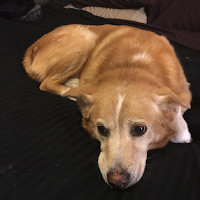It’s the
most wonderful time of year! As people start heading to the stores to purchase
neat toys for their loved ones, it is important to be aware of the toys that
could pose a potential danger to children. A consumer safety group called PIRG
(Public Interest Research Groups) recently released its annual report on
dangerous toys this holiday season. Some of the toys that made this list can
also be potential poisons. Here are some of the things to look out for this
holiday season.
Slime
Slime- you
see it everywhere these days due to its popularity with children. There are
products that now sell a set with of all the ingredients needed for children to
make their own slime. One of these slime making kits from Nickelodeon, is
labeled “Frozen Treats Slime” and is marketed as smelling just like ice cream.
But the packaging also states that the set contains harmful ingredients that should
not be ingested. These slime packages can be a lot of fun for children, but it
is extremely important that they are being monitored by an adult when playing. Slime is not made for ingesting and should be
kept out of children’s mouths.
Some slime
products contain a substance called borax. Borax is a naturally occurring
mineral, but natural is not synonymous to safe. Ingesting borax could cause
adverse reactions such as:
·
Rash
or burn to skin or mouth
·
Nausea
and Vomiting
·
Respiratory
problems
·
Long
term reproductive health issues
Ingesting
even a small amount of borax could potentially cause vomiting and diarrhea. Larger amounts could cause more severe
symptoms. If you or a loved one consumes
slime with borax, please do not hesitate to reach out to the Texas Poison
Center Network for help at 1-800-222-1222.
The call is free and is answered 24 hours a day, 7 days a week. If you are
looking for a slime recipe that doesn’t include borax, click this link to learn more.
Children’s Play Make-Up
Make-up can
be fun for children to play with, but it can also be a cause for concern. Last
year, asbestos was found in some make-up kits. Most make-up products are not tested or
required to pass any safety standards to ensure they are free of dangerous chemicals.
Therefore, it is best to err on the side of caution and check the ingredients yourself
if you are purchasing play make-up. We recommend avoiding these products altogether,
but if you are purchasing a make-up play set, make sure the products are contaminant and talc-free (talc can be a source of asbestos).
Exposure to asbestos
can cause several health cancers including mesothelioma. If you or a loved one
believes they have come in contact with asbestos, please call the Texas Poison
Center Network at 1-800-222-1222.
Jewelry with Toxic Metals
Children’s
jewelry is usually made from a variety of metallic and plastic materials. Some manufacturers have been known to use heavy
metals to include cadmium. Cadmium is a known carcinogen and can hinder brain
development in children. Therefore, it is not a good idea to purchase cheap jewelry
for young children who might potentially put these items in their mouths.
Button Batteries
Button
batteries are smaller than a penny. These lithium batteries can be found in
many children’s toys as well as remote controls and watches. The reason these
can be dangerous is if you were to swallow one, it could cause life-threatening
damage. The battery can cause burn damages to the esophagus, difficulty
swallowing and breathing, and sometimes death. If you might suspect your child
swallowed a button battery, please call the poison hotline as soon as possible.
Older Toys (and some new toys) that can
Contain Lead
Beware when
re-gifting older toys as they can contain lead. There are also some newer toys
(musical instruments available on-line), that through an investigation by the
Wall Street Journal, were found to contain illegal levels of lead.
Why is lead
dangerous? When a child puts objects containing lead in their mouths, the child
can get lead poisoning. Lead is toxic to humans and animals. It can cause
serious health issues and even low levels of lead in the blood can cause:
- Behavior and learning problems
- Hyperactivity
- Slowed growth
- Hearing Issues
- Anemia
In rare
cases, it can also cause seizures, coma, and even death. If you are concerned
you or a loved one might have encountered lead, please do not hesitate to reach
out to the poison center.
The Texas
Poison Center Network wants everyone to have a safe holiday and for presents to
be poison-free! If you have any issues or concerns about any toys, including
the ones we shared with you today, don’t hesitate to call. Our phone lines are answered by pharmacists,
nurses and toxicologists ready to help you with your poison concerns. Program
the number in your phone so you always have it handy: 1-800-222-1222.

























